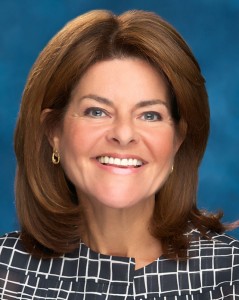Pfizer Attorney Schulman ’82 receives ABA ‘Women Lawyers of Achievement’ Award

Amy Schulman ’82, Pfizer’s executive vice president and general counsel, president of Pfizer Nutrition and business unit lead for Pfizer Consumer Healthcare, received a 2012 Margaret Brent Women Lawyers of Achievement Award, given annually by the American Bar Association Commission on Women in the Profession.
Mary Cranston, chair of the ABA Commission on Women in the Profession cited the five honorees as “shar[ing] tremendous achievements as lawyers and in their devotion to helping other women, and served as pioneers for those in the legal profession and beyond.”
Schulman, whose grandfather was the first public-housing commissioner in New York and later served as a federal judge, was also the daughter of two attorneys. She noted that she chose the legal profession out of a desire to help others, and made atypical decisions throughout her career that have led to success.
“I’ve come to realize that although I don’t think of myself in conventional terms as a risk taker, I actually am, at least professionally,” she says.
She had initially joined Piper Marbury, a relatively unknown firm when she was only two years shy of becoming a partner at another firm. Now Piper Marbury is the well-known international firm DLA Piper, where she was the first woman to serve on the firm’s global board and its U.S. executive committee.
Another professional risk took her to join Pfizer, Inc., the global pharmaceutical company, as the general counsel in 2008. In 2010, in addition to her role as general counsel, she became president and general manager of Pfizer Nutrition — a $2.1-billion global business.
Schulman serves as executive sponsor of Pfizer’s Global Women’s Council, which helps increase diversity and expand opportunities for both women and men across the company.
“I am committed to spending some of my political capital and voice to ensure women have a seat at the table that we are entitled to,” Schulman says. “There are various things that derail women institutionally: unconscious bias, gender fatigue. [You get] nearly to the top and then you don’t get a sponsor over the finish line. I want to ensure that doesn’t happen to people in my organization.”

